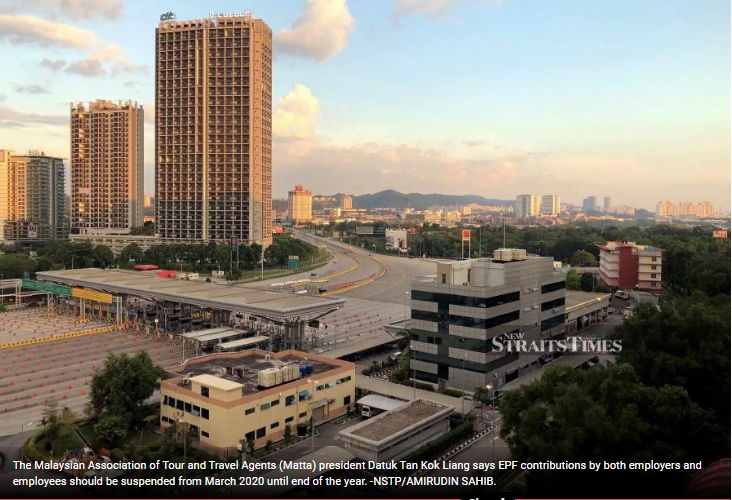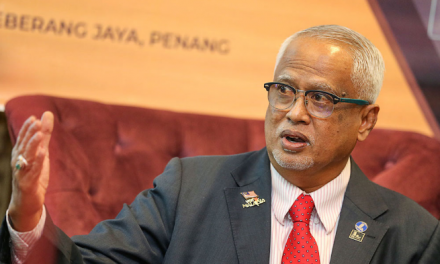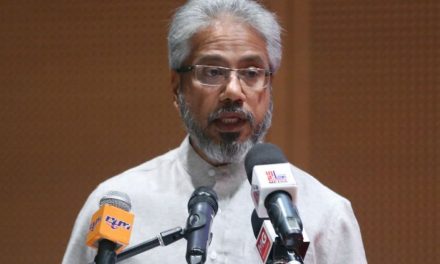KUALA LUMPUR | The Malaysian Association of Tour and Travel Agents (Matta) has urged the government to allow suspension of the private sector’s mandatory contributions to the Employees Provident Fund (EPF) and taxes for the year 2019.
Its president Datuk Tan Kok Liang said these measures could help prevent mass layoffs due to the extreme economic challenges faced by businesses caused by the Covid-19 pandemic as well as the government’s Movement Control Order (MCO).
He said the government could also help businesses pay 60 per cent of employees’ wages up to a maximum of RM4,000 per employee for the next six months.
“We are calling on the government to allow the private sector to stop mandatory contributions to EPF, the Human Resources Development Fund (HDRF) and other levies such as Socso, EIS and immediate deferment of corporate and individual taxes for year assessment 2019,” he said.
Tan said small and medium-scale (SMEs) tourism companies and facilities would cease operations resulting in a large number of workers losing their jobs due to liquidity issues if such assistance and stimulus are not forthcoming very soon.
He said the tourism industry which employs more than 3.5 million people which is 23.5 per cent of the nation’s total employment could expect to see two of five people or 40 per cent of them losing their jobs, consequently creating a ripple effect to other sectors.
He said the government should announce that the private sector be allowed to stop mandatory contributions to EPF, HRDF and other levies as the first measure.
He said EPF contributions by both employers and employees should be suspended from March 2020 until end of the year to allow employers to better manage their cash flow and for workers to have more cash for living expenses.
To further assist tourism related companies, Tan said the government should absorb 60 per cent of staff salaries up to RM4,000 per month for each staff for six months effective from April to September 2020.
“For this month, we have an estimated 90 percent drop in revenue and we expect the revenue from April to May to be practically nil.
“This request may seem ‘unreasonable’, but we are now under extraordinary circumstances,” he said.
He said countries like the UK and Denmark have already implemented ‘employee retention’ initiatives offering to pay up to 80 percent wages while other countries including South Korea, Ireland and Singapore have implemented similar strategies.
He emphasised that to protect jobs is the key point and businesses cannot be expected to keep paying employees when there is little or no income.
“It’s either close shop or lose jobs. Neither is desirable and a win-win solution would be for the government to help both employer and employee by sharing the burden of paying wages,” he said.
Tan also welcomed Bank Negara Malaysia’s recent intervention requesting financial institutions to provide a moratorium for the next six months.
However, he said the banks should take a more responsible approach and go beyond their call of duty by allowing waivers on the interest that is accrued and compounded on conventional loans during the moratorium period.
He said on Feb 5, Matta issued a statement calling for an Economic Stimulus Package bigger than the RM60 billion announced in 2009 during the financial crisis then.
Subsequently on Feb 27, he said then Prime Minister Tun Dr Mahathir Mohamad announced only a RM20 billion economic stimulus package to cushion the impact of Covid-19.
“We are now waiting for a more comprehensive package to be announced this coming Friday,” he said.
© 








